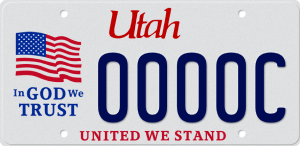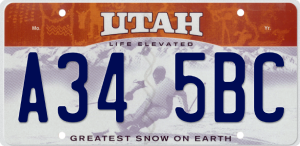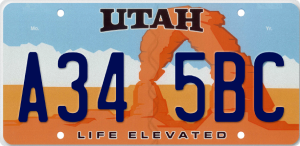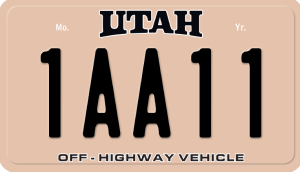A Utah license plate lookup provides actionable insights into a vehicle and its owner by accessing data linked to the license plate number. This method offers information like the vehicle’s attributes, accident history, ownership records, liens, and safety recalls.
Additionally, it includes registration information, which is valuable for addressing illegal vehicle registrations. According to KSL NewsRadio, approximately 16,000 vehicles are registered out-of-state yearly to evade Utah’s sales tax and registration fees, resulting in a $64 million revenue loss.
Owners often register their vehicles in states with lower or no vehicle taxes by establishing a legal address or shell company. Even though these vehicles are primarily driven in Utah, this tactic allows owners to bypass state laws requiring registration in Utah if the car is used there for over 30 days.
Such tax evasion adversely affects state revenue and infrastructure funding. Government agencies and law enforcement leverage registration details from license plate lookups to identify these violations and ensure compliance with state laws.
Why Run a License Plate Search in Utah?
License plate searches in Utah provide valuable information for various needs, from making informed car purchases to reporting vehicles involved in crime or fraud. Below are some common reasons why a license plate search is needed:
- Assess vehicle history to check for accidents, recalls, or safety concerns.
- Identify vehicles linked to criminal activity or accidents.
- Verify vehicle details for accurate claims processing and policy creation.
- Confirm car histories before purchasing or reselling.
- Prevent fraud by identifying tampered odometers and potentially stolen vehicles.
Is it Legal to Perform a License Plate Lookup in Utah?
Under the Government Records Access and Management Act (GRAMA), Utah residents can obtain and inspect copies of data from government records through license plate lookups.
This includes vehicle records held by the Division of Motor Vehicles (DMV), which is under the Utah State Tax Commission (USTC).
Individuals can also access Motor Vehicle Records (MVRs) maintained by the Driver License Division (DLD) of the Utah Department of Public Safety (DPS) according to Utah Administrative Code (UAC) Section R708-36-1. MVRs contain data on licensed drivers in Utah, detailing their violations, convictions, collisions, and any department actions taken.
However, state law specifically classifies certain information within these records as "private," "controlled," or "protected." Protected personal information is that which could identify individuals with sensitive data like driver's license numbers, financial information, or medical records.
The state restricts access to this information to uphold privacy and adhere to the federal Driver's Privacy Protection Act (DPPA). Protected personal information from driver or vehicle records may be accessed only by the individual to whom the record pertains, their authorized representatives or specific parties permitted by federal and state law.
These parties include law enforcement and judicial officers doing their official duties, insurance companies and private investigators conducting investigations, and towing companies communicating with the owners whose vehicle has been towed or impounded.
Additionally, Utah has exercised its discretionary powers to deny access to personal information for asset recovery, debt collection, or skip tracing. Violations can lead to substantial fines, imprisonment, and civil liabilities.
How Can You Conduct a Utah License Plate Lookup?
To conduct an effective license plate search in Utah, individuals must rely on the following trusted sources for accurate, secure, and reliable driver and vehicle data:

Utah DMV (Division of Motor Vehicles)
Individuals can conduct license plate lookups through the Utah DMV. The division manages vehicle registration, titling, and license plate issuance.
To request license plate information, individuals should complete a Release of Protected Motor Vehicle Information (Form TC-890), including the license plate number, their name or company name, a contact number, and the DMV Information Account Number.
They must send the completed form to the Utah DMV with a $4 check or money order payment.

Approved NMVTIS Data Providers
Another effective way of doing Utah license plate lookup is through authorized National Motor Vehicle Title Information System data providers like Recordsfinder.com, InfoTracer.com, GoodCar.com, and StateRecords.org.
Utah's participation in NMVTIS has enabled these providers to receive real-time data, thus protecting consumers from fraud, unsafe vehicles, and the resale of stolen cars.
NMVTIS is the only nationwide title database where reporting from all states, insurance carriers, junkyards, and salvage yards is mandatory.
Here are typical steps when performing license plate lookups with these approved NMVTIS providers:
- Visit the provider's website and locate the license plate lookup tool.
- Enter the vehicle's license plate number and any required details.
- Verify the information and click the search button.
- Review the report for vehicle history and ownership details.
- Save or print the report and contact support for assistance if needed.
What Information Can You Obtain from a Utah License Plate Lookup?
Utah license plate lookups yield basic and comprehensive vehicle history reports. Basic reports provide essential insights into a vehicle's factory specifications and features, such as:
- Make, model, and year (e.g., Honda Civic 2022, Chevrolet Silverado 2021)
- Engine specifications (e.g., turbocharged V6, hybrid, electric motor)
- Transmission type (e.g., continuously variable transmission, six-speed manual)
- Fuel efficiency (e.g., 30 MPG city, 40 MPG highway)
- Interior features (e.g., leather upholstery, touchscreen)
- Manufacturer warranties (e.g., three-year/36,000-mile basic warranty, five-year/60,000-mile powertrain warranty)
- MSRP (Manufacturer's Suggested Retail Price)
While basic reports deliver vital information, individuals often require more detailed data about the vehicle or its owner for informed evaluations and decisions. For that reason, authorized NMVTIS providers offer comprehensive vehicle history reports that contain the following:
- Registration information, including title history and sales records
- Lien records indicating financial obligations associated with the vehicle
- Repair and rebuild details covering title brands, hidden accident damage, and maintenance records
- Traffic data, including accident history, traffic violations, and convictions
- Recall information addressing unresolved safety issues, such as faulty components and performance defects
- Odometer discrepancies verifying the vehicle's actual mileage
- Insurance history revealing claims or coverage lapses
What Does a Utah License Plate Look Like?
Utah’s four standard plates feature distinct designs.
The In God We Trust plate showcases a patriotic theme, featuring a dark blue, five-character serial of four numbers followed by one letter. Set against a white background, "Utah" appears in red at the top center, with the U.S. flag on the left. Below the flag, "In GOD We TRUST" is inscribed in blue, while "UNITED WE STAND" completes the design in red.
Meanwhile, the Life Elevated Skier plate honors Utah’s winter sports legacy. It displays a six-character sequence with one letter, three numbers, and two letters in deep blue. A faded skier image appears between the characters, with "UTAH" printed in white, followed by "LIFE ELEVATED" and "GREATEST SNOW ON EARTH" below.
The Life Elevated Arches plate mirrors this layout with a dark blue, six-character serial, and a desert landscape backdrop. "UTAH" is screened in brown at the top center, with "LIFE ELEVATED" below, framed in black with a white shadow.
Lastly, the Off-Highway Vehicle plate features a beige background with a five-character black serial (one number, two letters, and two numbers). "UTAH"is at the top, with "OFF-HIGHWAY VEHICLE"below, both in black with a white shadow.





License Plate Types in Utah
The type of license plate can impact Utah license plate lookups. For instance, the "Life Elevated Skier" standard plate is easier to search due to conventional numbering, while a personalized "In God We Trust" plate, with up to five custom characters, may require additional verification in vehicle records.
Besides standard plates, the Utah DMV issues:
- Special Group Plates: These plates support specific causes or honor groups and come with specific qualifications and fees for issuance and renewal.
- Personalized Plates: Both standard and special plates can feature customized characters within set limits.
Frequently Asked Questions (FAQs)
Below are answers to frequently asked questions concerning Utah license plate lookups:
Can I Look Up UT Plates for Free?
Some third-party websites offer free Utah license plate lookup services. However, these searches typically provide limited information, including the vehicle's model, body style, and year of manufacture. Therefore, individuals needing more vehicle information must opt for paid lookups.Do All Utah License Plate Lookups Work for Custom or Personalized Plates?
Obtaining data from personalized license plate lookups in Utah may take longer or yield no results. This difficulty arises from potential errors when entering unique character combinations and the data vendor's limited resources, which hinder their ability to track or update personalized plate information.How Long Does a Typical UtahLicense Plate Lookup Take?
License plate lookups through the Utah DMV via mail typically take a few business days. In contrast, authorized NMVTIS data providers can deliver results in minutes or hours by utilizing Application Programming Interfaces (APIs) for real-time data sharing between connected systems.Can I Perform Bulk License Plate Lookups in Utah?
The Utah DMV and authorized NMVTIS data providers may permit bulk license plate lookups for entities like law enforcement, licensed private investigators, and insurance companies. These entities must meet the specific criteria under the DPPA and state privacy laws. For clarification, contact the Utah DMV or respective data vendors.Are There Any Alternatives to a License Plate Lookup for Obtaining Vehicle Information in Utah?
Besides license plate lookups, individuals can obtain vehicle information from the Utah DMV by subscribing to the online Title, Lien, and Registration (TLR) service, which requires the Vehicle Identification Number (VIN) for data release.They can also purchase certified copies of others' MVRs from the DLD by mailing Form DLD 266M with a notarized certification from the record's owner. Lastly, individuals can access driver and vehicle data through VIN checks from authorized NMVTIS data providers.
